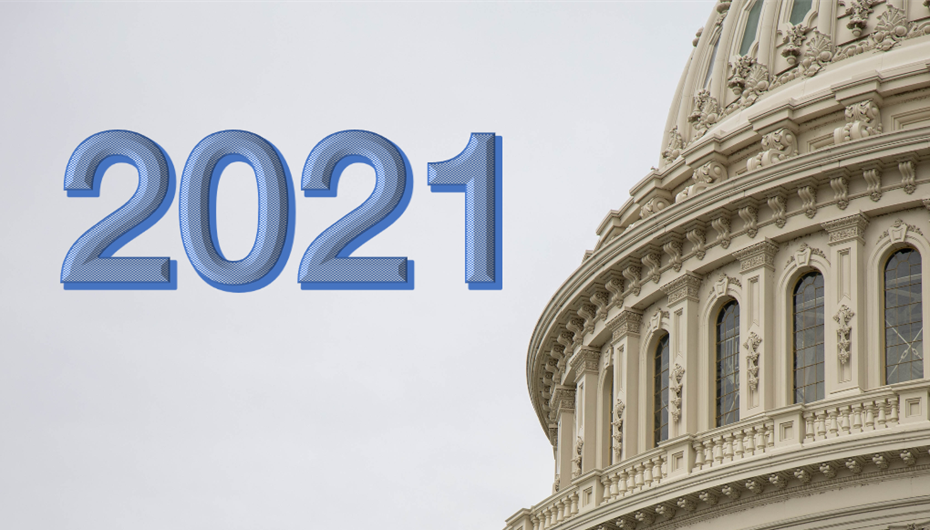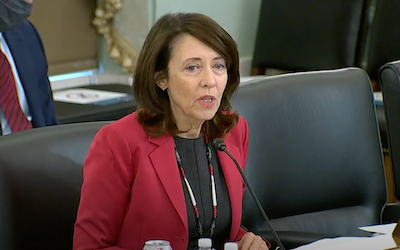If you were like me, you welcomed 2021 expecting the New Year to start erasing the chaos of 2020 -- and you certainly didn’t expect the first week to bring an attempted coup d'état!
But our government remains standing and as we look to the year ahead, it’s anyone’s guess on how things will unfold in the tech sector given the turbulence we’re experiencing from political upheaval and the impact of COVID-19. It's my view that in 2021, four areas of tech will be ripe for dramatic change or disruption as a result of pending or recent government action.
#1. Proptech:
On November 19th, the Department of Justice (DOJ) filed an antitrust case and simultaneous settlement requiring National Association of Realtors® to repeal and modify certain anticompetitive rules. https://www.justice.gov/opa/pr/justice-department-files-antitrust-case-and-simultaneous-settlement-requiring-national
The home buying / selling process in the US is full of bloat and the 6% paid in fees to brokers is out of alignment with the true value of the services provided to sellers / buyers. The goal of the DOJ settlement is to increase competition to the benefit of American homeowners and homebuyers and to allow for innovation in brokerage markets. I have no doubt this will happen as a result of the settlement.
Real estate is the world’s largest asset class worth over $250 trillion - which is 3x the total value of all publicly traded companies. Yet fintech companies have received 7x more VC funding than real estate companies.
In 2021, there will be lots of opportunity for pro-consumer Proptech companies to start bringing marketplace efficiencies and transparency to the housing market and the start-ups of 2021 will become household names in a few short years. Smart VCs will get ahead of the curve this year while the rest will act like wildebeest stampeding across the Serengeti and only change course with the herd. Personally, I have my chips on Homing.com
#2. Crowdfunding:
In all the excitement leading up to the US elections, most people missed an important press release by the SEC:
SEC Harmonizes and Improves “Patchwork” Exempt Offering Framework
Rule amendments harmonize registration exemptions, eliminating complexity and facilitating access to capital and investment while preserving or enhancing important investor protections
Crowdfunding was made feasible in 2016 after passage of the Jobs Act and under what’s known as “Regulation Crowdfunding (Reg CF),” a company could raise up to $1.07 million using a FINRA approved crowdfunding portal. However, entrepreneurs struggled with overhead and costs associated with raising money in this fashion. In many cases, the costs never seemed to justify the effort. As a result of the advocacy by numerous stakeholders in the industry and organizations like the Crowdfunding Professional Association (CfPA), on November 2nd, the SEC announced a change to the maximum fundraise under Reg CF to $5 million, per year. (And under Reg A+ Tier II, the limit is raised from $50 million to $75 million). This is significant. At the $5 million cap, the economics drastically improve for this founder-friendly method of raising capital.
This means a start-up company could feasibly raise $5m in year 1 to build their product, $5 m in year 2 to sell/market their product, and $5m in year 3 to augment their revenue stream with growth capital. It’s a great way to steadily grow a new business with fresh capital standing by at various value-inflection points. Furthermore, your customers can be your investors which is great market validation for companies. Early-stage VCs will have to rethink their strategies as Crowdfunding CF starts to take root.
Although much of the public may not yet be aware of the opportunities in equity crowdfunding, media initiatives launching in 2021 like Crush Capital’s Going Public series (a “shark tank” where the TV audiences can invest) will start to bring crowdfunding into the living rooms of America.
#3. Micro-Social Media:
In 2021, extractive, winner-take-all business models of mainstream social media will go out of style and that will open the door for smaller, private branded social media networks.
On October 6th, the House Judiciary Committee’s Antitrust Subcommittee released 450 pages of findings of its more than 16-month long investigation into the state of competition in the digital economy, especially the challenges presented by the dominance of Apple, Amazon, Google, and Facebook and their business practices. The report found a “Clear and compelling need to strengthen antitrust enforcement and consider a range of forceful options, including structural separations and prohibitions on anticompetitive conduct.” https://judiciary.house.gov/uploadedfiles/competition_in_digital_markets.pdf
In 2020, both Google and Facebook became subject to antitrust suits. The latter case against Facebook by New York Attorney General, Letitia James, was announced December 9th along with a coalition of 48 Attorney Generals. Many observers feel the suit has legs – especially as it relates to Facebook’s abuse of data after various acquisitions.
There’s no doubt that Congress and regulators will clip the wings of “Big Tech” or throw some sand in their gears in 2021. Just today, Visa and fintech company Plaid called off their $5.3 billion agreement (Visa acquiring Plaid) in response to a DOJ filed suit (November of 2020) to block the deal as it would be anti-competitive. Will companies soon get broken up? That may take time. But social media start-ups and innovators have long struggled in the shadow of Facebook whereby the prospect of acquisition reduces payoffs to new entrants and their investors. This creates a “kill zone” in the space of startups, as described by venture capitalists, where new ventures are not worth funding (see scholarly work of Luigi Zingales et al. https://papers.ssrn.com/sol3/papers.cfm?abstract_id=3555915 ).
With the prospect of imminent regulation, there’s about $2 trillion in public company market capitalization that is at risk of serious compression once US lawmakers and regulators recast the rules under which these platforms operate. Trillions more in value will be shifted around and unleashed after the reforms.
In 2021, VCs will have to reevaluate. To date, they have fueled the rise of these large, extractive social media companies and they continue to oversee them as Board Directors (here’s looking at you, Marc L. Andreessen - https://investor.fb.com/corporate-governance/default.aspx @ Andreessen-Horowitz ) even as they wreak havoc on our society. (See: Facebook is a Doomsday Machine https://www.theatlantic.com/technology/archive/2020/12/facebook-doomsday-machine/617384/ )
Investors must decide if they will continue fueling business as usual -- or if they are prepared to disrupt the incumbent business models they know too well. It may be a while before we see micro-social and private label media start to trump mainstream social media -- but the green shoots are there and continued government efforts to curb the anticompetitive behavior of large companies may give innovators the space they need to grow.
#4. Pro-consumer / Data Privacy Focused Companies:
The click-for-profit model has been wildly successful for Big Tech but it relies on hyper-targeting and the exploitation of an individual’s user data. Combined with opaque algorithms, we’re seeing horrible divisions and fractures in society. See the Social Dilemma on Netflix? If you have, the events leading up to the recent coup attempt are less surprising.
While many lawmakers and regulators will point their canons as the bigness of big tech, it’s the business models that need reform, The enabling fuel for many of these companies is unfettered use of user data without concerns for compensation to the data owners or their privacy.
Companies like Apple have started bringing transparency to the privacy practices of other companies and apps on their App store. Will pro-data privacy efforts by private companies win in the marketplace and therefore, be enough to stave off the need for government intervention on the issue of privacy? I don’t think so. The issues are too complex for the average consumer and there are too many opportunities for companies to pay lip service to privacy protection while doing nothing.
In 2019, Democratic Sen. Maria Cantwell introduced the Consumer Online Privacy Rights Act (COPRA), a comprehensive federal privacy framework, but she didn’t get it passed. https://www.cantwell.senate.gov/imo/media/doc/COPRA%20Bill%20Text.pdf
She will likely become the new chair of the Senate Commerce Committee where she can elevate COPRA or take a new approach on it. While it may not happen in 2021, the seeds will be planted for major legislation on privacy before the mid-term elections of 2022.
With this in mind, established businesses with foresight can hedge, and early-stage companies not locked in any business model can get ahead by incorporating COPRA principles into their service offering. Not only will this put power back into the hands of consumers, it will also help future-proof the business models of companies for the day when legislation does finally arrive.
It has been said that prediction is very difficult, especially when it’s about the future. But that doesn’t stop us from trying. If you want to engage with me or discuss your own predictions, you can find me at: http://eco.brainsy.com/brianchristie/ama
###
Register for FREE to comment or continue reading this article. Already registered? Login here.
2






Perhaps you can write some more predictions on what sectors will be most affected by government inaction?